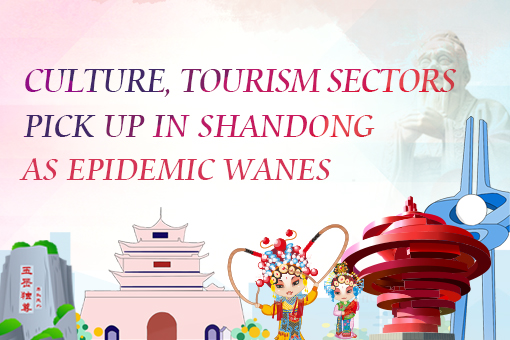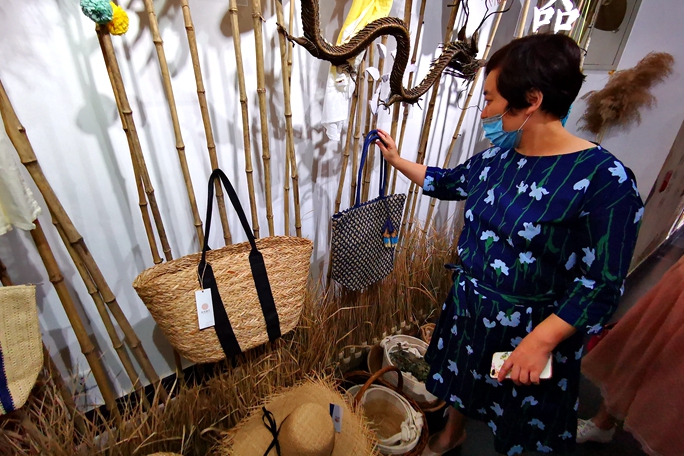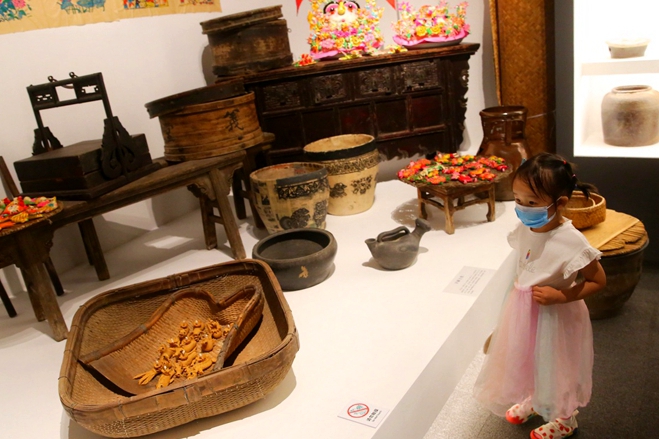Philosopher's guide
Canadian scholar and advocate of Confucianism Daniel A. Bell receives the Huilin Cultural Award. Wang Kaihao reports.
His Chinese name is Bei Danning, which is based on the pronunciation of his English name, but it also indicates "simplicity and tranquility" in Mandarin, paying homage to ancient Chinese sages.
Daniel A. Bell is the dean of the School of Political Science and Public Administration at Shandong University in Jinan, a rare post on the Chinese mainland for foreigners.
Still, the Canadian political theorist and philosopher, who's best known for his studies on China, wants to be treated by locals as a "Chinese". Not to mention that he is married to one.

"It's about culture, not race," Bell, 54, says in Mandarin during a recent visit to Beijing Normal University.
"If foreigners who are not of Chinese ethnicity can come to appreciate that learning about Chinese culture is not just a hobby or a skill to help in business, but a matter of identity," he says, "then it can enrich our minds and fundamentally change the way we lead our lives."
In late January, he received the Huilin Cultural Award, an annual prize of Beijing Normal University given to both Chinese and foreign scholars who make extraordinary contributions to Sino-foreign cultural communication.
"That (shared culture) was a traditional understanding of what it means to be a Chinese," Bell says. "It will be healthy for both China and the rest of the world to revive it and reinterpret it in modern times."
He credits the open-mindedness to history - China embraced people from overseas as early as in the Tang Dynasty (618-907).
"Some of the values in mainstream Chinese culture had been deliberately marginalized since the 19th century for bad reasons," he explains. "It was just because China then didn't have as much economic and political power as Western countries, and these values were viewed (by the West) as maverick," he says.
"But they should be promoted for social and philosophical reasons as China's economic and political power is rising nowadays."
Born in Montreal and educated at McGill and Oxford, Bell, an advocate of Confucianism, has continued research on that ancient Chinese philosophy in the past 20 years or so by visiting and teaching at institutions such as Princeton University in the United States, Tsinghua University in Beijing, the National University of Singapore and the University of Hong Kong.
In 2016, he accepted the invitation from the university in Shandong province, the original center of Confucianism.
The province's Qufu city was the birthplace of Confucius, a philosopher and educator of the Spring and Autumn Period (770-476 BC).
Bell says while there has been a growing interest among foreigners in learning the Chinese language, most of them are doing so for business. And, now, when China is making efforts to revitalize its cultural self-confidence, he wants to help people more comprehensively understand this country.
"As a known Canadian philosopher on comparative politics, he has focused on the studies of Confucianism and has written many treatises on Chinese culture and social politics," says Wang Song, deputy director of the education, science, culture and healthcare department at the State Administration of Foreign Experts Affairs.
Wang attended the award ceremony at Beijing Normal University in January.
According to Wang, Bell's works have been published in 23 languages.
"He has sincere emotions about Chinese culture," Wang says. "His in-depth studies have made an extraordinary contribution to help our culture go global."
Bell says he does not know if he deserved the prize but adds that a lot of work remains to be done in this field. He points to the difficulties of promoting Chinese culture overseas.
"Promotion of sophisticated forms of Chinese culture is a long-term project," he says. "If it becomes vulgarized and homogenized, we will have failed at our task."
Bell does not want to scratch the surface. So he has picked an angle, which is less metaphysical but probably more challenging as well.
In his book, The China Model: Political Meritocracy and the Limits of Democracy, which was first published in 2015, he favors China's meritocracy, which echoes ideas in Confucianism, over the one-person one-vote system in selecting a country's political leaders. He has faced criticism from some Western scholars, probably because his statement differs from what they have taken for granted.
"I think it's a problematic view to think there is only one legitimate way to select political leaders," Bell says.
"There are different possibilities, decided by the country's size, history and the public's needs.
"Meritocracy is where mainstream political culture is in China, which is large and complex."
Consequently, he emphasizes the importance for the modern world to "respect the differences".
"I don't think any philosophy per se can solve problem," he says. "But values in Confucian traditions are helpful to think of issues more efficiently."
For example, according to traditional Confucianism, social relations should be in a form of peaceful order, and diversity coexists with harmony. He believes these ideas can resonate among many cultures. He hails China's efforts to cut poverty and improve this kind of harmony.
And, for foreigners who want to know fundamentals of Chinese politics today, he still recommends "classics" first.
"Most of the greatest works were done in the Spring and Autumn Period," he says. "It's important to read (Confucian) classics starting with Confucius, Mencius and Xunzi."
Both Mencius and Xunzi were followers of Confucianism in the later Warring States Period (475-221 BC).
"But it should also include their critics like the so-called legalists as well as other mainstream schools. The books are still on the subjects we need today."
Separately, speaking of the revival of traditional culture in China in recent years, which has led to Confucian institutions and academies mushrooming all over the country, Bell thinks the trend is positive as long as "there are different interpretations".
"It will be bad to say 'This is what Confucianism means, and other interpretations are disallowed'," Bell says. "It's a good thing if there are more diverse expressions of Confucianism and other Chinese philosophies flowering all over China."
Contact the writer at wangkaihao@chinadaily.com.cn
|
Daniel A. Bell favors China's meritocracy in his book The China Model, which was translated into Chinese in 2016. Photos Provided to China Daily |
(China Daily 02/05/2018 page20)


 Shandong Culture and Tourism Consumption Season
Shandong Culture and Tourism Consumption Season Culture, tourism sectors pick up in Shandong as epidemic wanes
Culture, tourism sectors pick up in Shandong as epidemic wanes

